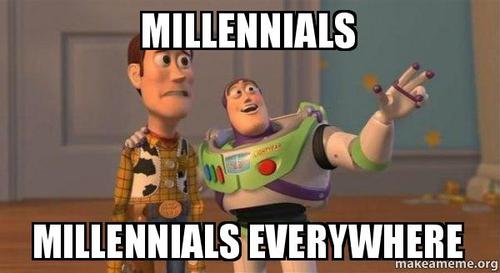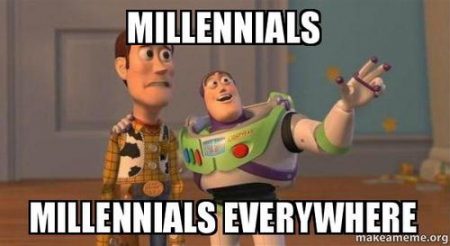September 16, 2016 – This posting is Jessica Oaks’ tenth contribution to 21st Century Tech blog. It is Part 2 of a series. You can read Part 1 going to the link here. Jesscia is a freelance journalist with a passion for technology news. Her themes focus on the role of technology in making our lives easier. Find her many musings at FreshlyTechy.com. Also check her out on Twitter @TechyJessy. This posting completes her thoughts on how generational change is influencing how young people buy and how the world of selling is radically being altered by technology including social media. Your comments and observations, particularly millennials, are welcomed.
If you haven’t noticed already, Millennials are a force to be reckoned with. There are more of them than anyone else, and they have money to spend. For business owners, the question shouldn’t be “Can I sell to Millennials?” Rather it should be “How do I sell to Millennials?”
Generally speaking, Millennials like to call the shots when it comes to their consumer experience. This independence applies to other aspects of their lives as well. Despite the practical concerns they face, many Millennials are now their own boss (and this is because e-commerce platforms and businesses like Amway allow them to be their own boss with greater ease than ever before). They know how to market to their own age group better than anyone else, and they have a drive to create and build.
Millennials and Baby Boomers are quite different in many ways. Understanding the differences can help business owners tap into this emerging market. Selling to Millennials is about meeting their immediate needs. If you’re a Millennial yourself, you already know this. But you don’t have to be to find success in reaching this audience. So this is what you need to know with a Millennial buying audience.
Millennials Shop Local
Maybe you think this is a tired cliché, but in truth Millennials really do like shopping locally. The reasons for this are many. Shopping locally develops a sense of community (a sense of community which many feel was lost with the sub-urbanization of North America), helps perpetuate a persona of individuality by avoiding brand name stores, and helps individuals live a quality of life they believe is more in keeping with who they are. Or perhaps it’s simply because shopping local is everything their parents do not do!
Millennials Love E-Commerce
Amazon. Etsy. Netflix. Hulu. Uber. The list goes on and on. Despite a penchant for visiting local bricks and mortar shops, Millennials love shopping online. And that is because for everything that isn’t an Americano or Cafe Latte, it usually is more convenient to buy directly using their phone or laptop. That includes taxi rides and television. Millennials are drawn to e-commerce because they value its convenience and competitive pricing. Online retailers tend to offer both values in spades. Millennials often are more brand-loyal than one might think, and strong online presence goes a long way to reach their demographic.
Millennials Love Deals
When Millennials were adolescents shopping at a dollar store would have been embarrassing for many. The 1980s and 1990s were perhaps the peak of American consumerism focused on material acquisition. But that is no longer the case. Today Millennials are happy to shop for a deal and have no qualms with letting others know. Though Millennials may happily drop $100 on a new pair of Nike Pegasus sneakers, they are just as happy to buy essentials for $1 a piece. Though Millennials can be loyal, they also seem to realize that brand loyalty can go too far. In many of their minds it doesn’t matter what brand of toothpaste you buy.
Millennials Crave Instant Gratification
Amazon Prime offers free two-day shipping. Uber and Lyft allow Millennials to hail a cab directly using a smartphone. And services like AirBnB let Millennials book a room for a night in homes across the world, and they can do this on the same day they want to check in. Needless to say, Millennials like instant gratification. As a business owner or corporate executive, understanding helps to refine your products, services, and delivery methods. If you own an e-commerce business, for example, an emphasis on fast delivery may be more important than competitive pricing.
Millennials Value Authenticity
This concept may be the most tenuous to grasp. That’s because authenticity is a completely subjective metric. Despite this it’s a goal easily reached. If you break down how to be authentic into specific action steps, they are rather simple:
- communicate
- engage them directly
- be honest
- offer a product that has clear value or purpose
- show a commitment to something other than yourself.
Millennials like businesses that are philanthropic, that fulfill a need within the marketplace, develop new technologies or ways of doing things, and that solve problems in clever ways. They also like businesses that are open and upfront. Any business can do this but many don’t. And when they don’t they likely miss the Millennial market.










